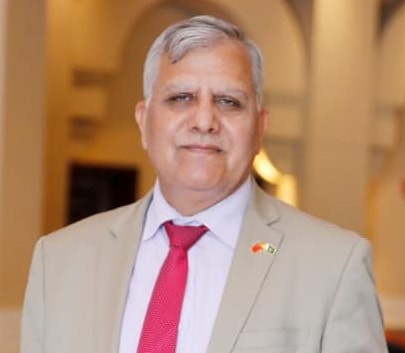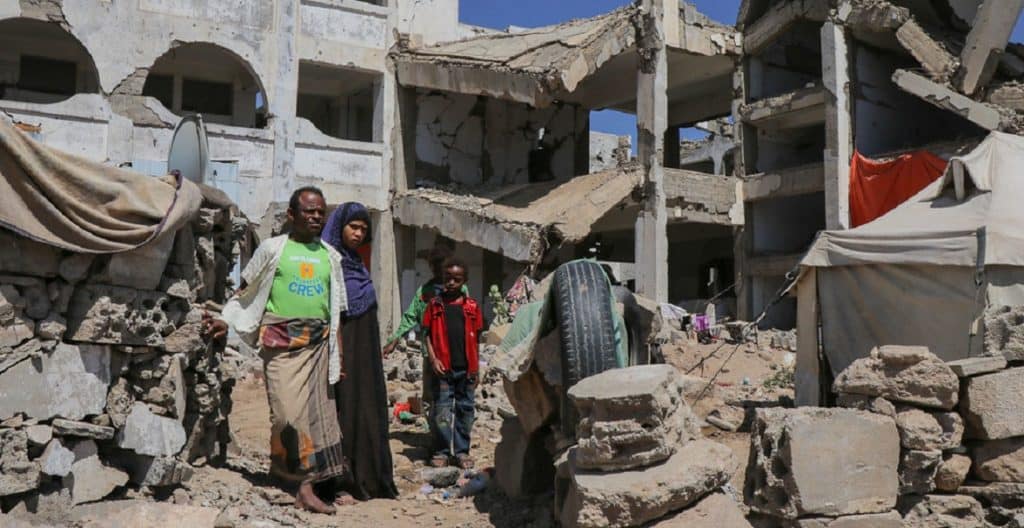By Prof. Engr. Zamir Ahmed Awan
One of the oldest civilizations, the Republic of Yemen, is a country at the southern end of the Arabian Peninsula in Western Asia.

It is the second-largest Arab sovereign state in the peninsula, with a population of 30 million approximately, and occupying 527,970 square kilometres. The coastline stretches for about 2,000. It is on the crucial trade routes since centuries and possessing a very strategic location.
Yemen was divided into: the U.S.- and Saudi-backed Yemeni Arab Republic, in the north, and the USSR-backed People’s Democratic Republic of Yemen (PDRY), in the south, as the inheritance of European colonialism. The modern Yemeni state was formed in 1990 with North and South’s unification and ruled under President Ali Abdullah Saleh.
As part of Arab Spring, an uprising in Yemen destabilized President Ali Abdullah Saleh’s legitimate Government. Many groups were then struggling to gain control over Yemen, including Houthis as the most extensive and most vigorous group.
Houthis being Shi’a were not welcomed by Saudi Arabia, and consequently, Suadi Arabia launched an attack on Yemen as a full-fledged war. Saudi Arabi was supported by all Oil-rich Gulf States and the U.S. and its allies. The U.S. availed this opportunity to sell its weapons and deployed military personnel at a very high cost to the Kingdom of Saudi Arabia.
With a poverty ratio of more than 50 percent, Yemen was the poorest country in the whole Arab world and was depending on aid from rich Arabs states and International donors. Acording to a UN report, found that over half of Yemen’s thirty million people will experience crisis-level food insecurity by mid-2021. The disease has run rampant; suspected cholera cases reached some seven hundred thousand in 2019. The country has also been hit-hard by the coronavirus. Moreover, as the pandemic has hit-hard the world’s economies and disturbed supply chains, many countries have cut back on life-threatening aid to Yemen. The United Nations collected less than half the aids demanded for Yemen in 2020, raising doubts of starvation in a country where 80 percent of the population depends on humanitarian assistance.
In November 2020, the UN refugee agency informed that, since 2015, the war had displaced more than three million people. The condition has worsened under the four-year-long land, sea, and air blockade imposed by coalition forces, obstructing vital food and medical supplies. The U.S.-based Armed Conflict Location and Event Data Project (ACLED) has documented more than one hundred thousand deaths due to absence of food, health services, and infrastructure since 2015. And most of them were innocent civilians.
The United Nations has found that both Houthi and coalition forces have violated international humanitarian law by attacking civilian targets. It comprises the coalition’s destruction of a hospital run by the international relief organization Doctors Without Borders in 2015. Torture, indiscriminate arrests, and forced disappearances are among the other violations committed by both sides.
UN-backed peace negotiations have made narrow progress. The 2018 Stockholm Agreement prevented a battle in the important port city of Hodeidah. Still, there has been little success in implementing the accord’s provisions, including the exchange of more than fifteen thousand prisoners and creating a joint committee to deescalate violence in the city of Taiz.
Since taking office, President Joe Biden has moved to reverse the Trump administration’s last-minute designation of Yemen’s Houthi rebels as a terrorist organization, started a review of U.S. Yemen policy named veteran diplomat Timothy Lenderking as special envoy to Yemen. As a significant change, President Joe Biden’s first major foreign policy speech on Feb. 4, he announced that the U.S. would halt “offensive support” for the Saudi-led coalition’s war power in Yemen, including the handover of precision-guided munitions, while “stepping up” diplomatic support for United Nations-led mediation efforts.
It is a very much favorable decision by President Joe Biden, and it is expected, he will vigorously pursue his policy to end the Yemen war. It will save further bloodshed and precious human lives. It will definitely improve the American image in the Arab world. It will also help Saudi Arabia to improve its leadingership role in the Muslim World.
Author: Prof. Engr. Zamir Ahmed Awan, Sinologist (ex-Diplomat), Editor, Analyst, Non-Resident Fellow of CCG (Center for China and Globalization), National University of Sciences and Technology (NUST), Islamabad, Pakistan.
(The views expressed in this article belong only to the author and do not necessarily reflect the editorial policy or views of World Geostrategic Insights).
Image Source: news.un.org







